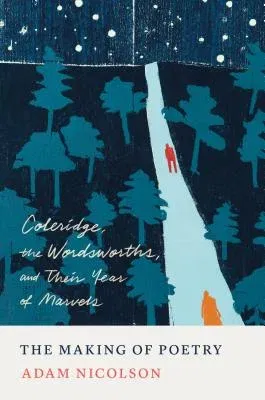Brimming with poetry, art, and nature writing--Wordsworth and
Coleridge as you've never seen them before
June 1797 to September 1798 is the most famous year in English poetry.
Out of it came Samuel Taylor Coleridge's The Rime of the Ancient
Mariner and "Kubla Khan," as well as his unmatched hymns to friendship
and fatherhood, and William Wordsworth's revolutionary songs in Lyrical
Ballads along with "Tintern Abbey," Wordsworth's paean to the unity of
soul and cosmos, love and understanding.
In The Making of Poetry, Adam Nicolson embeds himself in the reality
of this unique moment, exploring the idea that these poems came from
this particular place and time, and that only by experiencing the
physical circumstances of the year, in all weathers and all seasons, at
night and at dawn, in sunlit reverie and moonlit walks, can the genesis
of the poetry start to be understood.
The poetry Wordsworth and Coleridge made was not from settled
conclusions but from the adventure on which they embarked, thinking of
poetry as a challenge to all received ideas, stripping away the dead
matter, looking to shed consciousness and so change the world. What
emerges is a portrait of these great figures seen not as literary
monuments but as young men, troubled, ambitious, dreaming of a vision of
wholeness, knowing they had greatness in them but still in urgent search
of the paths toward it.
The artist Tom Hammick accompanied Nicolson for much of the year, making
woodcuts from the fallen timber in the park at Alfoxden where the
Wordsworths lived. Interspersed throughout the book, his images bridge
the centuries, depicting lives at the source of our modern sensibility:
a psychic landscape of doubt and possibility, full of beauty and thick
with desire for a kind of connectedness that seems permanently at hand
and yet always out of reach.

